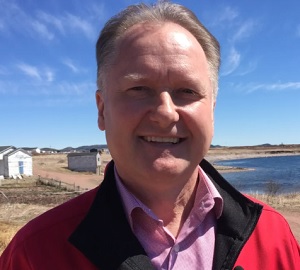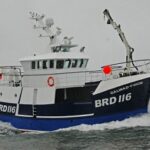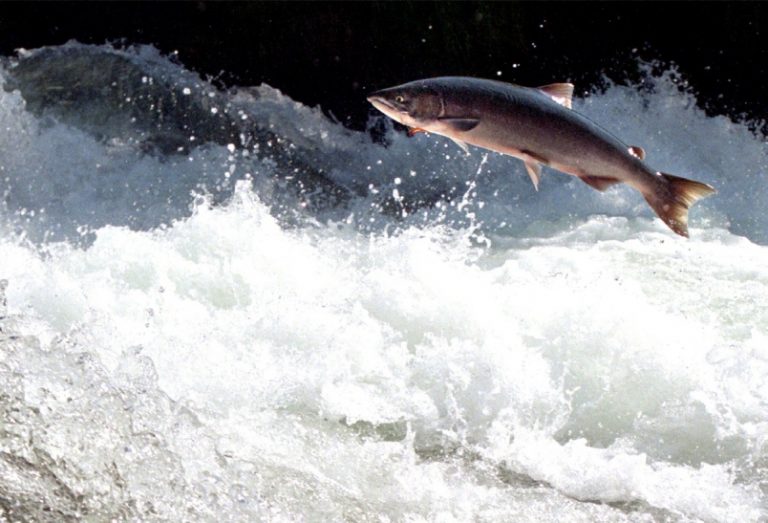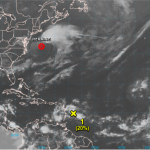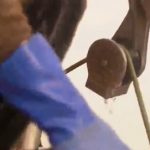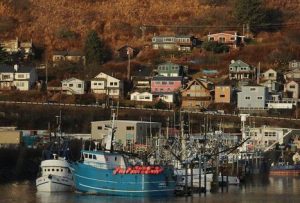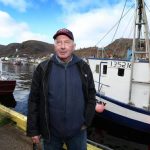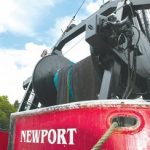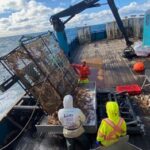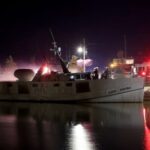Monthly Archives: September 2020
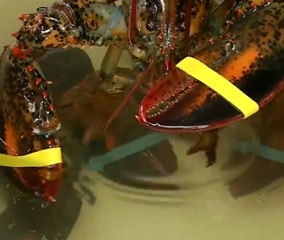
Maine lobster industry salvaged its summer despite pandemic
The Maine lobster industry is in the midst of a multiyear boom, and fishermen have caught more than 100 million pounds (45,360,000 kilograms) for a record nine years in a row. It’s hard to guess whether they’ll reach that total again, but summer 2020 hasn’t been half bad for a season in which many fishermen expected collapse, said Kristan Porter, president of the Maine Lobstermen’s Association. “Especially early in the season when nothing was open, no restaurants were open. We were thinking it would be a complete disaster,” Porter said. “If it stays like this, we can struggle through and have a season, and then get ready to fish next year.”>click to read< 17:03
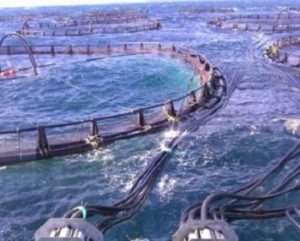
Senators Introduce Legislation to Establish Offshore Aquaculture Standards
Senators Wicker-R, Schatz -D and Rubio -R introduced legislation, the Advancing the Quality and Understanding of American Aquaculture (AQUAA) Act (S. 4723) in the U.S. Senate. The bipartisan AQUAA Act, which has companion legislation in the U.S. House, would support development of an offshore aquaculture industry in the U.S. to increase the production of sustainable seafood and establish new economic opportunities in federal waters. >click to read< 13:43
 First Nations, commercial fishermen demands end to B.C. salmon farms – A broad coalition of First Nations leaders, wilderness tourism operators, environmental NGOs and commercial and sport fishing organizations gathered in North Vancouver Sept. 22 demanding the federal government fulfill recommendations of the Cohen Commission to immediately remove open-net salmon farms from the Discovery Islands, and abolish all others from BC waters by 2025. >click to read<
First Nations, commercial fishermen demands end to B.C. salmon farms – A broad coalition of First Nations leaders, wilderness tourism operators, environmental NGOs and commercial and sport fishing organizations gathered in North Vancouver Sept. 22 demanding the federal government fulfill recommendations of the Cohen Commission to immediately remove open-net salmon farms from the Discovery Islands, and abolish all others from BC waters by 2025. >click to read<
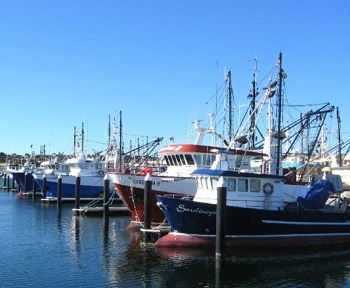
South Australia West Coast fishers reeling from priority species quota ITQ
Fishers on South Australia’s West Coast fishers who have invested hundreds of thousands in boats and licences since 2016 say they have received new quotas that only allow them to catch 87 kilograms of priority species annually. The State Government is rolling out what it calls individual transferable quotas (ITQs), part of its controversial Marine Scalefish Fishery,, for those with a catch history prior to 2016, particularly West Coast fishers where the average age was between 55 and 60, the formula was effectively a “golden handshake” to sell their quota and exit the industry. But he said it was anything but for younger fishers who bought into the industry after mid-2016,, Mr Schmucker said the industry would be “divided” as young operators scrambled to find another $150,000 to buy more quota while simultaneously competing with investors who were snapping up relinquished ITQs. >click to read< 09:10
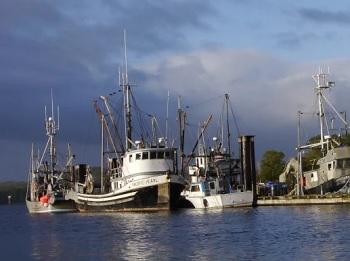
B.C. harvests 196,000 tonnes of fish a year. Most of it is exported and that’s a problem
There are about 4,000 fish harvesters scattered across the province who harvested about 196,000 tonnes of wild seafood in 2018, worth $476 million, everything from salmon to crab to geoducks. Most of that seafood didn’t stay in Canada. The province exports all but about 15 per cent of its annual catch each year and, like most of Canada, imports between 70 and 90 per cent of the seafood British Columbians eat, according to federal data. The licensing policies that give fish harvesters the right to fish the B.C. coast have privatized access to seafood and put them on the open market. >click to read< 07:50

Mi’kmaq push for legal lobster sales for non-Indigenous buyers
The Mi’kmaw community in Nova Scotia that recently launched its first self-regulated lobster fishery is now pushing the province to change laws restricting non-Indigenous fish buyers from doing business with the First Nation. Sipekne’katik First Nation introduced its Trade and Transport regulations today for Mi’kmaw fishers to legally sell seafood harvested under the right-based fishery to Mi’kmaw and non-Indigenous consumers and seafood wholesalers.,, While Sipekne’katik is willing to work with seafood buyers from the existing commercial fishing industry, Sack said, until an agreement is reached with governments, there are few places for Mi’kmaq to sell their lobster. >click to read< 19:59
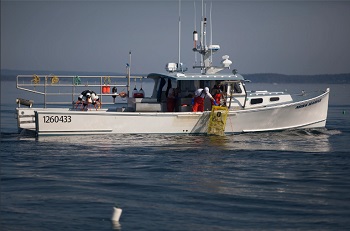
This lobster season they expected hell, but got high water
Captain Nick Muto of Chatham, Massachusetts, expected this summer’s lobster fishing to be a disaster. With restaurant shutdowns and other supply chain issues, he was expecting to have to hustle hard to get good prices for his ocean delicacies. But he was pleasantly surprised. “I hate to say it out loud, but things are right now looking very good,” he said. Like many fishermen, Muto shifted to selling more lobsters directly into local markets, whether to restaurants or even right off the docks to consumers. Patrice McCannon, executive director of the Maine Lobstermen’s Association, said government relief programs like the CARES Act and Payment Protection Program have helped harvesters stay afloat. >click to read< 18:11

Hot Air And The Offshore Wind Industry – Claims it will invigorate these state economies are thin gruel
Seven Atlantic Coast states—Massachusetts, New York, New Jersey, Maryland, Rhode Island, Connecticut, and Virginia have enacted mandates to subsidize the development of thousands of megawatts of offshore wind turbines. In addition to making bold claims about environmental benefits, proponents promise the mandates will create new offshore wind manufacturing and service industries that will create jobs, and lots of them, along the eastern seaboard.,, New York State Energy Research and Development Authority claims that developing 2,400 megawatts (MW) of offshore wind will create 5,000 new jobs and $6.3 billion in infrastructure spending. Similar claims of economic grandeur have been made in New Jersey and Virginia. Not to be outdone, the American Wind Energy Association claims the offshore wind industry will create between 45,000 and 83,000 new jobs by 2030. >click to read< 12:05
 As Wind Farm Proceeds, So Does Pushback – Orsted U.S. Offshore Wind and Eversource Energy, which are developing the proposed South Fork Wind farm, filed a joint proposal with the New York State Public Service Commission,, Commercial fishermen are almost universally opposed to the wind farm, fearing an impact on their livelihood, >click to read< 13:47
As Wind Farm Proceeds, So Does Pushback – Orsted U.S. Offshore Wind and Eversource Energy, which are developing the proposed South Fork Wind farm, filed a joint proposal with the New York State Public Service Commission,, Commercial fishermen are almost universally opposed to the wind farm, fearing an impact on their livelihood, >click to read< 13:47
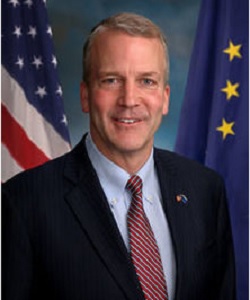
Sen. Dan Sullivan voices strongest opposition to Pebble Mine yet – “I oppose Pebble Mine. No Pebble Mine.”
After Sen. Dan Sullivan’s name was dropped by executives of Pebble Limited Partnership in secretly recorded tapes released this week, the senator has gone to Twitter to oppose the mine. In a tweet posted Thursday afternoon, Sullivan says, “Let me be even more clear: I oppose Pebble Mine. No Pebble Mine.” That tweet ended a thread of posts he started about the “lies of Pebble’s leadership” the senator said he needed to set the record straight.,,, “Finally, I have been clear that given the important aquatic system and world-class fishery resources at stake, Pebble, like all resource development projects in Alaska, has to pass a high bard — a bar that the Trump administration has determined Pebble has not met,”, >click to read< 10:37
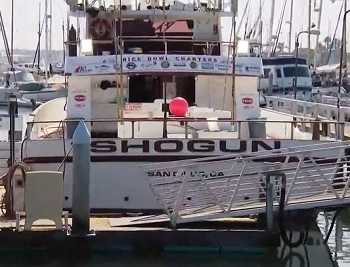
Four crew members on charter fishing vessel taken to area hospitals after suspected overdoses
San Diego Fire-Rescue responded to a call of multiple suspected overdoses on the fishing vessel Shogun near Fisherman’s Landing. Crews on scene administered Narcan to the four crew members who were then taken to hospitals in various states of consciousness. News 8 learned that two of the people were taken to Mercy Hospital, one to UCSD and it was unclear where the fourth was taken. The Shogun had just returned from a three-day fishing tour and no guests were on board when the suspected overdoses occurred. >video, click to read< 09:38

Editorial: Cost of at-sea monitors is unfair, cost prohibitive.
Imagine trying to run a Main Street business, a restaurant or gift shop, maybe during the pandemic. A cratered economy and the threat of disease make each day a challenge and the future uncertain. Now imagine the government dropping another $700 in fees on you every time you open your doors. There’s no way your mom-and-pop operation could survive. The New England Fishery Management Council, which essentially sets the rules for commercial fishing in the region, will meet next week to decide how often monitors will be required on fishing vessels. Early indications are that councilors will require a monitor on every trip, with the average cost of $700 to be borne by fishermen. >click to read< 08:42
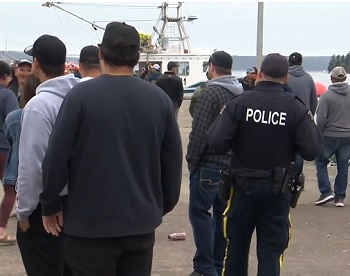
Sipekne’katik First Nation to meet with Minister Bernadette Jordan next week
After multiple calls to meet with the Department of Fisheries and Oceans, members of the Sipekne’katik First Nation will sit down with Fisheries Minister Bernadette Jordan next week. Chief Michael Sack tells Global News the details of the meeting, to be held amid an ongoing dispute between Indigenous and non-Indigenous fishers, are still in the works, but he says it will be held virtually as Jordan is returning from Ottawa and will need to self-isolate for 14 days upon her arrival. video, >click to read< 19:11
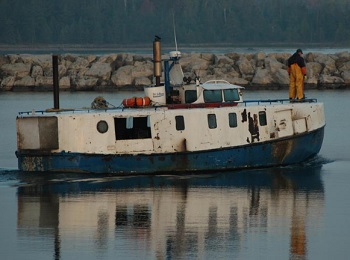
Congress gave $300 million to help fisheries. The Great Lakes got zero. Why were they left out?!
The nationwide shutdown was especially ill-timed for fishers in the Great Lakes. “We had reports of commercial fishermen in Michigan who had a catch with absolutely nowhere to sell it,” Luckily, there was a plan in place to help commercial fishers and charter boats. But when it came time to distribute that funding, most of the Great Lakes states were left out altogether. That came as a shock to many fishers. “Right up until the final hour, a lot of the Great Lakes fishery participants thought that they were going to be included,” says Gravelle. Why the Great Lakes were left out? >click to read< 14:53
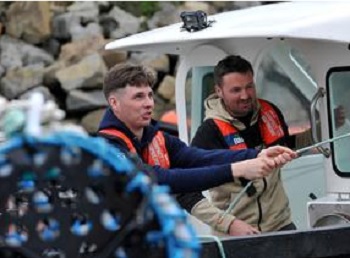
These guys are hot! Fishermen who rescued lost paddleboarders, rescue a man in Galway
The father and son who rescued two paddleboarders last month have saved another life after plucking a man from the water in Galway yesterday morning. Patrick Oliver and his 18-year old son Morgan were hailed for their role in saving two cousins in Galway Bay last month. Now the father and son have been hailed heroes again after rescuing a Galwayman who was spotted in the water in the River Corrib around 9am yesterday morning. The Olivers, who were on their way out to sea in their fishing boat, turned back. >click to read< 13:55
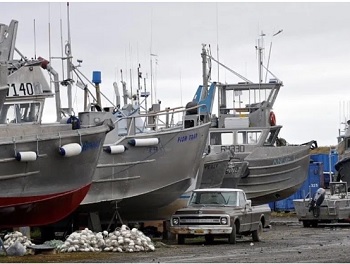
Special report: Pebble, and the reality of life in the region for those without commercial fishing permits
Pebble Mine is a story of Alaskans and Native peoples being prohibited from using their natural resources. The mine is of tremendous significance to the Alaska people touched by it, but not in the ways that have been portrayed in media…incessantly. Among the thousands of articles, press releases, documentary-style videos, and advertisements written and paid for by Outside environmental activist groups and wealthy donors, none mentions the people whose lands and lives will actually be affected by the mine. While Alaskans love and care about their State, not all have had their voices heard. Many have been drowned out. Most of the general public outside these small remote communities are probably unaware that there even are other views about the mine, voices in support. It’s time they were heard. >click to read< 12:54
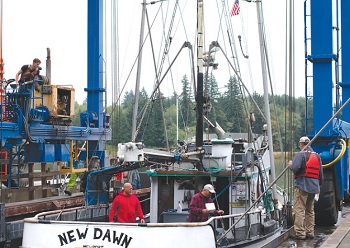
Port of Toledo continues expansion
“The boatyard used to only go down to there,” Port of Toledo Manager Bud Shoemake said at the Port of Toledo Shipyard on the Yaquina River,,, Shoemake, as he always does, credits good strategic planning as well as the port’s many partners, including the Siletz Tribe, for the growth and success of the port. “Everything we’ve done is because of the plan,” he said. The shipyard currently sees more than 200 boats come in each year, most for regular maintenance. “We call it a shave and a haircut,” said Shoemake — boats getting power washed, a fresh coat of paint and new zincs. >click to read< 10:39
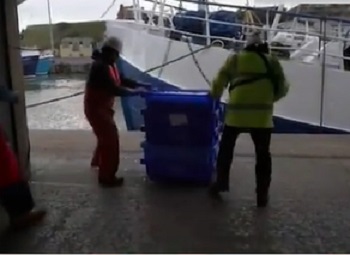
Brexit fishing breakthrough: Canada’s turbot war with EU sets example for Britain
A ten-year controversy between Ottawa and Brussels involving overfishing and fishing violations by EU vessels from Spain and Portugal in international waters outside Canada’s 200-mile limit only came to a head in 1995. Fishing in those waters is managed by the Northwest Atlantic Fisheries Organisation (NAFO). With scientists warning that turbot, the largest remaining commercial fish stock in the Northwest Atlantic, was overfished, NAFO established a total allowable catch and quotas for the 1995 fishing season. >click to read< 09:39
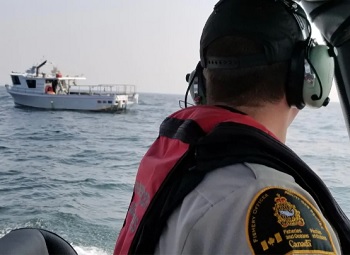
Fisheries officials seize 316 Canadian crab traps set in U.S. water, along with four vessels as part of annual sting
“You have people who push the envelope because it may be worth it for them to do that if they don’t get caught, because there’s money in crab — there’s good money in crab,” he said. “Sometimes getting caught and getting fines may be the price of doing business.” Demsky estimates each set of gear — including a trap, float, ropes and radio frequency ID chip — would cost about $500 to replace. DFO will seek the forfeiture of all of them, and the courts will decide whether the fishers will face fines, the loss of their fishing license or vessels. The fines are often several thousand dollars, but can to go a maximum of $500,000 for a first-time offender, according to Demsky. >click to read< 08:10
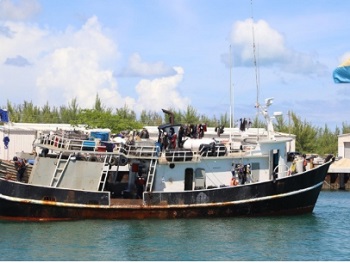
Coast Guard and Royal Bahamas Defense Force seize more than 12,000 lbs. of IUU Fishing catch off Bahamas
Watchstanders from the Coast Guard’s Operation Bahamas and Turks and Caicos operation center coordinated with RBDF crews to board two commercial fishing vessels, El Ship and Angel Gabriel, which had 83 fishermen aboard. The RBDF boarding team seized more than 12,000 pounds of illegally caught fish and lobster. The partnership between the Coast Guard and RBDF to catch these illegal fishermen came just days after the Coast Guard released a new strategy to enhance global safety, security, and stewardship of the maritime domain by combating Illegal, Unreported, and Unregulated (IUU) fishing. photos, >click to read< 21:51
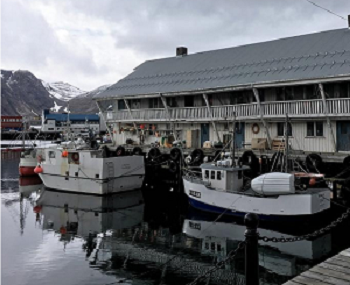
Northern Fishermen in Norway Want to Go It Alone
Last week, the Norwegian Fishermen’s Association, Division North (NFA North) decided to exit from the Norwegian Fishermen’s Association. The proposal to leave was approved with only one vote against.,, members and local chapters are dissatisfied with the fact that issues they raise are not sufficiently followed up on a national level within the NFA. What kind of issues? According to Hansen, one of the problems is that larger and modern coastal vessels have built up so that they can fish efficiently out in the open seas and also fish in areas near the coast, areas with fish on which the traditional coast-based fleet depends. >click to read< 20:00
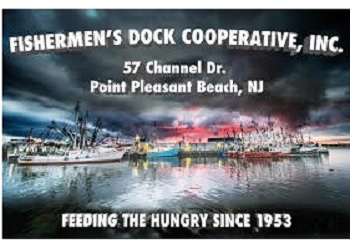
Jersey Shore Seafood Made Simple! Shawn & Sue talk fishing and seafood with Jim Lovgren
Like everyone else, our local fishermen have been hit hard by the economic fallout of the coronavirus pandemic. Support your local fishermen by purchasing fresh seafood from these participating markets & restaurants. Then, use their own recipes at the bottom of this page to prepare yourself a  delicious meal. This is a great interview, and Jim covers a lot of issues from Coronavirus to offshore wind farms, conservation, and the beginnings of the NMFS, and the 200 Mile limit. >click to listen<, as you scroll though the article for locations and recipe’s! 15:04
delicious meal. This is a great interview, and Jim covers a lot of issues from Coronavirus to offshore wind farms, conservation, and the beginnings of the NMFS, and the 200 Mile limit. >click to listen<, as you scroll though the article for locations and recipe’s! 15:04
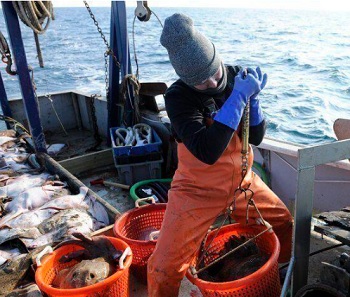
Fishing group asks Baker to fight ‘crippling’ monitor measure
The Northeast Seafood Coalition is trying to enlist Gov. Charlie Baker in its campaign against the monitoring measure that it charges has the “strong potential” to financially cripple the state’s commercial groundfish industry. The Gloucester-based coalition sent Baker a letter last Friday laying out its case that Amendment 23, which will set future monitoring levels for sector-based, Northeast commercial groundfish vessels is highly flawed and should be withdrawn by the New England Fishery Management Council. >click to read< 12:47
Athearn Marine Agency Boat of the Week: 51’X22′ Fiberglass Longliner, Cummins Diesel, Permits Available
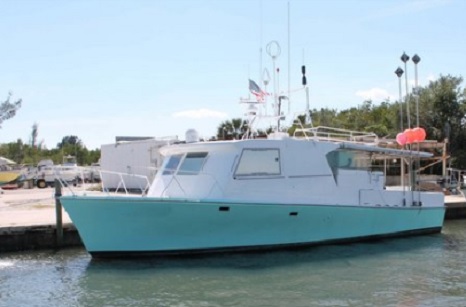 To review specifications, information and 5 photos, >click here< To see all the boats in this series, >click here< 12:01
To review specifications, information and 5 photos, >click here< To see all the boats in this series, >click here< 12:01
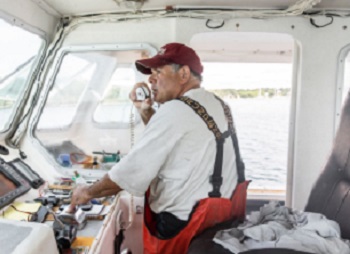
A Lobsterman Slogs On Through the Pandemic
Mike Dawson (self-employed) Location: New Harbor, Maine Employees: 1 Status: Open, essential industry. During the summer, “catch landings are probably down. But we can gain quite a lot in October, November, and December,” says Mike Dawson, a lobsterman who fishes off the coast of Maine. “August was kind of slow. Not an overabundance of lobster.” But Dawson this year is still grappling with the tepid demand and disruption caused by the pandemic. Lobster recently fetched $3.60 a pound for soft-shell, down from $4.05 a year ago. The occasional hard-shell lobster—which is rarer to catch at this point in the growing season for lobster—got $4 a pound, down about 25 cents a pound from a year ago. >click to read< 09:41
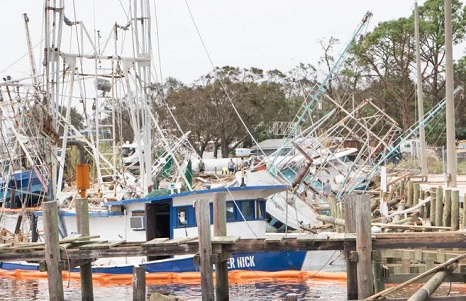
‘Ain’t no hurricane going to stop Joe Patti’s’ – Shrimp boat captains docked behind Joe Patti’s devastated
Joe Patti’s Seafood bore a beating, but the iconic Pensacola seafood market expects to survive the hit dealt by Hurricane Sally. “We got it on the chin,” However, it’s likely a different story for the fishing boat fleet that docks behind the Joe Patti’s warehouse. Seven of the nine shrimp boats — which are primarily captained by Vietnamese immigrants, many of whom lack maritime insurance — were ravaged by the hurricane. Standing on the wharf behind Joe Patti’s on Tuesday morning, it looked like a battleship had turned its guns on the small fishing fleet. Where there had been docks, scraps of driftwood bobbed in the shallow water. Shrimp boats with punctured hauls sat on the bottom of the harbor. 45 photos, >click to read< 08:44
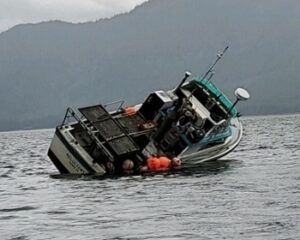
U.S. Coast Guard rescues two fishermen from a grounded fishing vessel in Neka Bay
The Coast Guard rescued two fishermen Tuesday from a grounded fishing vessel in Neka Bay, south of Hoonah. Coast Guard Cutter John McCormick arrived on scene at approximately 8:34 a.m. and launched a small boat crew who rescued the operator and a crew member from the fishing vessel Reluctant. No injuries were reported. The Coast Guard received Reluctant’s initial report about running aground at about 8:30 a.m. photos, >click to read< 07:25
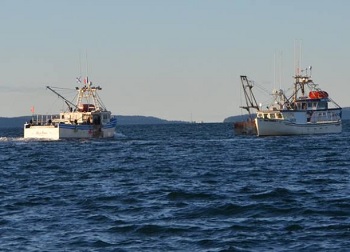
The historic ups and downs of the Acadian-Mi’kmaq relationship
Mi’kmaq fishermen, emboldened by a decades-old Supreme Court of Canada ruling affirming their treaty right to hunt, fish and gather in pursuit of a moderate livelihood, spent another day trying to drop their lobster traps in the waters there. Pitted against them were non-indigenous fishers who claim that the natives are threatening the local lobster fishery’s sustainability, and who have been making their point by cutting First Nation traps, and trying to pressure buyers not to purchase their harvest. Once again, the federal government stood mutely by, unwilling to clarify the question of what constitutes a “moderate livelihood” fishery, and then, by omission, further fuelling a situation that looks like it could turn violent at any moment. It sounds, therefore, strangely like the scene I encountered 21 years ago in Burnt Church, N.B. >click to read< 17:38
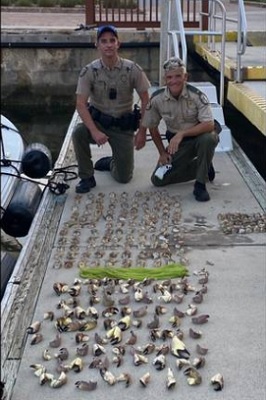
Three jailed after being caught with 109 undersized lobsters, out of season stone crab claws in the Keys
Three Lower Keys residents were jailed Friday after state fish and wildlife police said they were found with more than 100 undersized lobsters and a haul of out-of-season stone crab claws. Many of the crab claws were also undersized, police said. Rigoberto Morales, 52, of Stock Island, was the captain on the ESPY vessel, which was headed into shore near Stock Island carrying the illegal catch when officers on patrol decided to check their catch, according to the Florida Fish and Wildlife Conservation Commission. Two crew members, Charles William Rahming, 27, of Key West, and Arlem Silva, 34, were also booked into the Stock Island Detention Center along with Morales on a number of charges. >click to read< 13:38
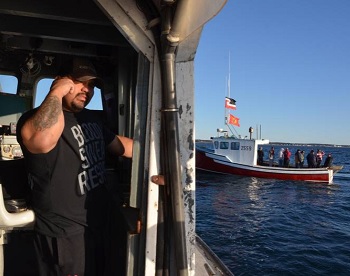
Federal inaction drives lobster feud
A Coast Guard cutter and two helicopters (one RCMP, one DFO) provided little more than backdrop scenery to the boiling tensions on the Acadian shore Monday. Both the First Nations encamped behind a barricade at the Saulnierville Wharf and the predominantly Acadian local fishermen with their own roadblock at the Meteghan wharf 14 kilometres away called on the federal authorities to uphold the law. But whose law do they uphold? Successive federal fisheries ministers have kicked the issue down the election cycle by providing commercial licenses to First Nations bands without negotiating the Supreme Court of Canada acknowledged right of individual Mi’kmaq to make a moderate livelihood off of natural resources. The vacuum left by their inaction is being filled with threats, flares and rubber bullets. >click to read< 10:29
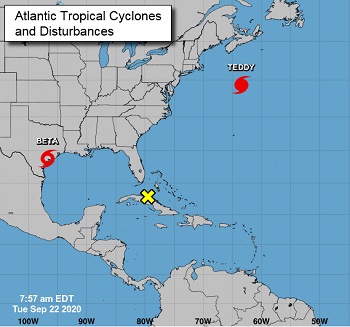
BETA expected to stall inland over Texas – Teddy to bring heavy rain, strong winds, destructive waves to Nova Scotia
Tropical Storm Beta is forecast to weaken and gradually lose tropical characteristics while spreading flooding rains further inland across the lower Mississippi Valley… >click to read< ,, Hurricane Teddy Public Advisory – Interests in Atlantic Canada should closely monitor the progress of Teddy. >click to read<
Hurricane Teddy’s impact on Massachusetts: Coastal flooding, large breaking waves as high as 24 feet and winds as strong as 55 mph in the forecast >click to read< 09:09






